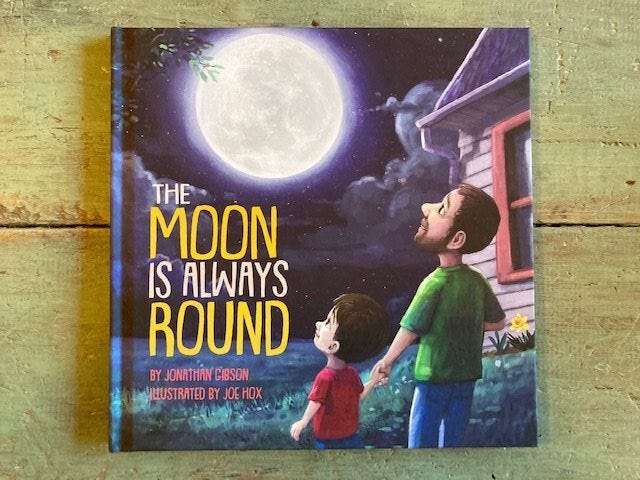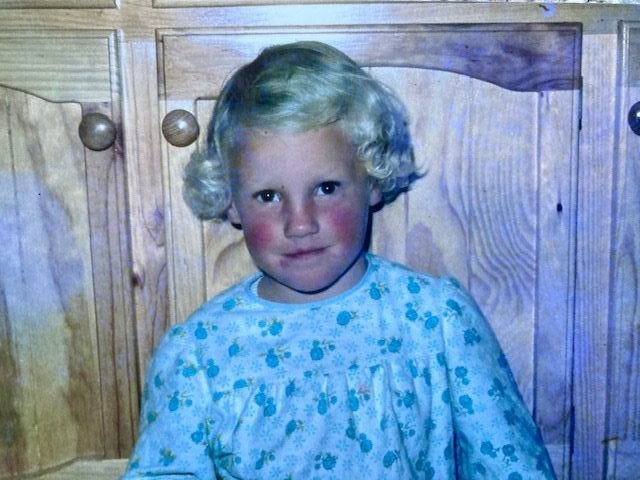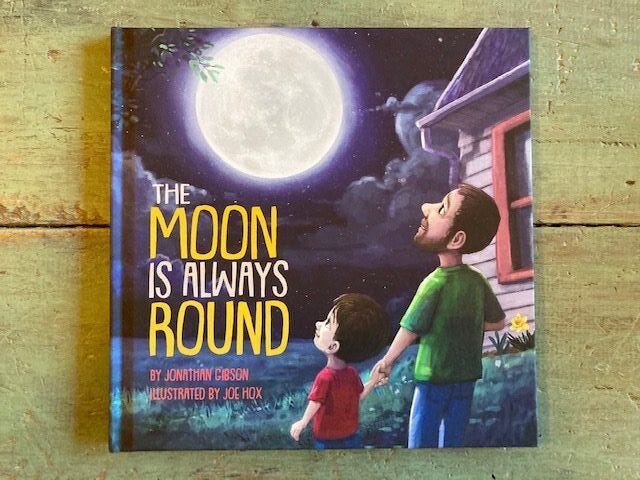When the moon is a sliver
My Mum gave me a print of this photo on Christmas morning and said ‘that was taken on the night your father died’. I thought ‘oh, well I really mustn’t think about that now’, as I swallowed, set it aside and opened the next gift.
I don’t know why this photo exists. It’s not taken at our home. My older sister and I were dropped at a friend’s house that night after my Mum received the phone call to come to the hospital. I can’t explain why those friends took my picture. Already I look a little pensive and confused. And I look strangely older than I do in other photos of me at four; my usually wild white curls tamed over to the side.
But it is a portentous moment, captured on film. Life was not the same again after that evening, and I was not the same child. There followed a psychosomatic illness, just for starters. I don’t believe there was much awareness or effort invested into helping children walk through grief back then. We stumbled on, left to wrestle with the effects of childhood trauma as they surfaced in adulthood, when we had more of our own awareness.
All this to tell you about a book for children I have recently acquired and loved. It’s a book written for children to help them understand tragedy, called The Moon is Always Round, written by Jonathan Gibson. I believe it might have been helpful to me when I was four. It’s helpful to me when I’m, well, let’s just say decades older. It’s based on a simple but memorable little metaphor that the moon is always round, even when we can’t see the whole of the sphere, and so God is always good, even when we can’t see how or why he is.
To tell the truth, decades later I can’t see the earthly good that came from my father dying that night. My Mum, now retired, is lonely. I doubt the absence of a father helped me find a healthy male relationship. I could write pages of the negative consequences. Any positive ones, on the other hand, seem largely speculative. There’s simply no means of comparison. But at times I wonder if maybe what we try to see as ‘good’ is all wrong. Maybe the point is that there will be some who testify to the goodness of following Jesus, and the goodness of God himself, even in what looks like, or actually is, a ‘bad’ life, down here and on the outside. I don’t know. I know that God is good, and I know he is working all things for good, but what I don’t know is that that has to mean everyone is living the best life they could live. Why then would we need heaven?
But I like to remind myself that the moon is always round. And I like this little book.
(Disclaimer: I met the author of this book on several occasions while I was Sydney and he was studying at Moore Theological College, but couldn’t say I know him enough to post about a book if I did not genuinely think it work posting about.)




